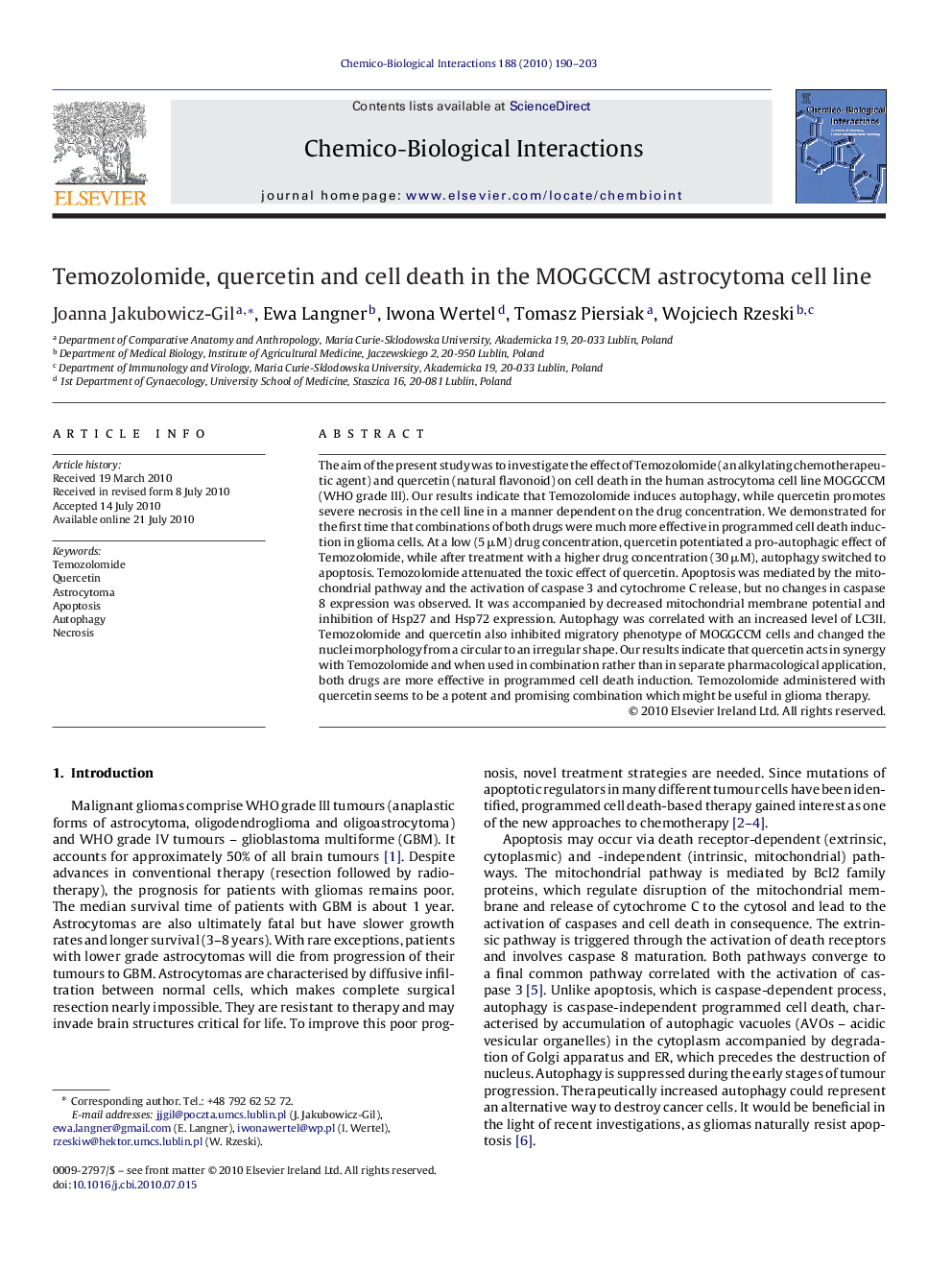| Article ID | Journal | Published Year | Pages | File Type |
|---|---|---|---|---|
| 2581062 | Chemico-Biological Interactions | 2010 | 14 Pages |
The aim of the present study was to investigate the effect of Temozolomide (an alkylating chemotherapeutic agent) and quercetin (natural flavonoid) on cell death in the human astrocytoma cell line MOGGCCM (WHO grade III). Our results indicate that Temozolomide induces autophagy, while quercetin promotes severe necrosis in the cell line in a manner dependent on the drug concentration. We demonstrated for the first time that combinations of both drugs were much more effective in programmed cell death induction in glioma cells. At a low (5 μM) drug concentration, quercetin potentiated a pro-autophagic effect of Temozolomide, while after treatment with a higher drug concentration (30 μM), autophagy switched to apoptosis. Temozolomide attenuated the toxic effect of quercetin. Apoptosis was mediated by the mitochondrial pathway and the activation of caspase 3 and cytochrome C release, but no changes in caspase 8 expression was observed. It was accompanied by decreased mitochondrial membrane potential and inhibition of Hsp27 and Hsp72 expression. Autophagy was correlated with an increased level of LC3II. Temozolomide and quercetin also inhibited migratory phenotype of MOGGCCM cells and changed the nuclei morphology from a circular to an irregular shape. Our results indicate that quercetin acts in synergy with Temozolomide and when used in combination rather than in separate pharmacological application, both drugs are more effective in programmed cell death induction. Temozolomide administered with quercetin seems to be a potent and promising combination which might be useful in glioma therapy.
